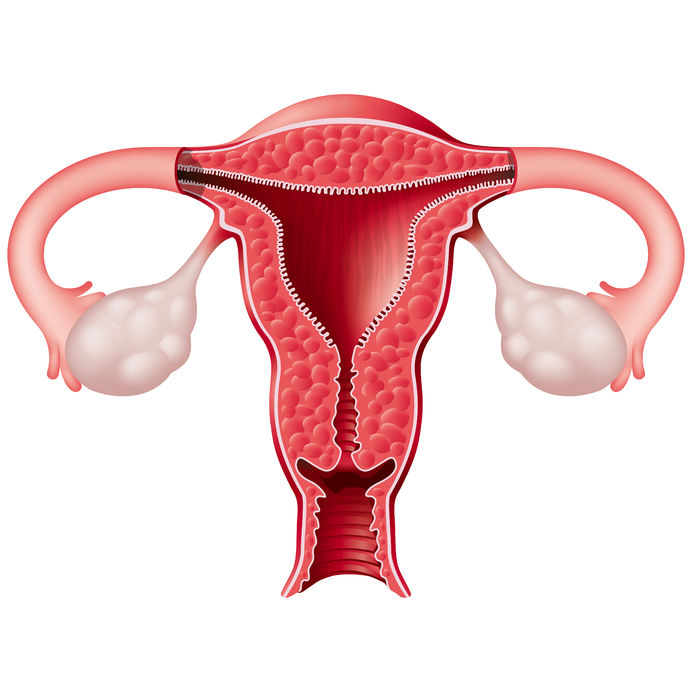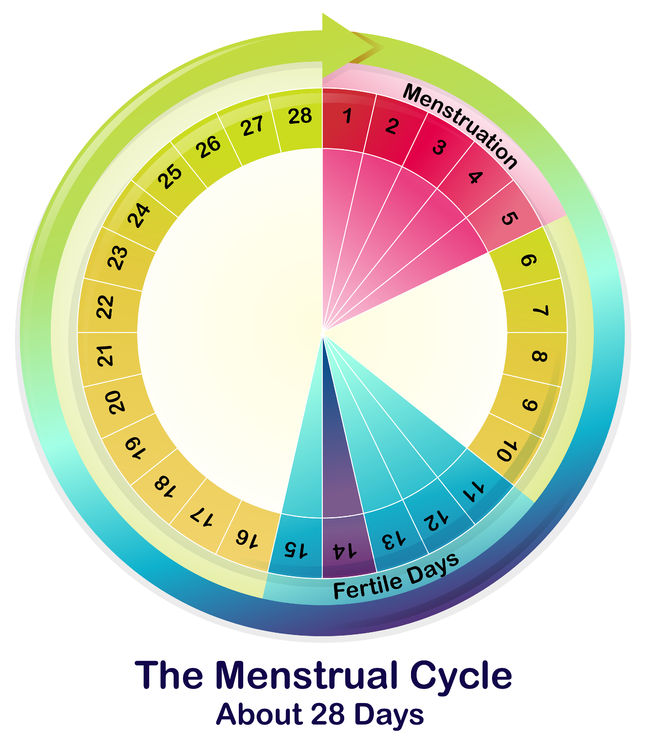
by Ayesha Qureshi ND
Polycystic Ovary Syndrome (PCOS) is the most common cause of anovulatory infertility prevalent in 5-10% of women of reproductive age. Anovulation is abnormal ovarian function in which the ovary is unable to release an oocyte (egg) during a menstrual cycle [1, 2]. In PCOS, multiple cysts are often present on the ovaries revealed by ultrasound detection and there is biochemical findings of hormonal imbalance. An excess of androgens (male sex hormones) are present in PCOS resulting in elevated testosterone levels [2].

The excess testosterone is what causes some of the signs and symptoms of PCOS such as hirsutism defined as abnormal excess facial hair on face or body, acne and thinning of hair or hair loss [2,3]. Other hormonal imbalances are also evident in PCOS women. Luteinizing hormone (LH) is a hormone produced by the anterior pituitary gland and a spike in hormone triggers ovulation in women. Follicle Stimulating Hormone (FSH) is a hormone involved in reproduction that stimulates growth of ovarian follicles to mature. An elevated LH/FSH ratio of 3:1 is considered abnormal and is found in PCOS women [2, 6]. These hormonal imbalances contribute to the inability to ovulate causing infertility and about 75% of women with PCOS experience menstrual irregularities [5]. They also have an increased risk of hypertension, elevated cholesterol, diabetes and cardiovascular disease [2,3]. PCOS women may often present with insulin resistance in the absence of diabetes such that 30-40% of women may have impaired glucose tolerance. Elevated insulin stimulates the ovaries to produce androgens and this contributes to signs and symptoms of elevated testosterone. The altered insulin sensitivity can influence hormonal parameters and impede ovulation [1]. This abnormal ovarian function and hormone imbalance can pose a challenging burden on PCOS women who are trying to get pregnant. In the US, the total cost of evaluating and treating reproductive-aged PCOS women estimated about $4.36 billion [4].
Early diagnosis and intervention attributes to cost-effective strategy to prevent disease complications in women.
Diagnosis
 According to Rotterdam criteria, diagnosis of PCOS can be made when two of the following are present: Oligo-ovulation (irregular ovulation) or anovulation, clinical or biochemical signs of hyperandrogenism (elevated androgens) and polycystic ovaries detected by ultrasound [5]. It is important to realize that the presentation of PCOS may differ for each women. Some women may not experience hirsutism or have irregular menstrual cycles. Generally when suspecting PCOS in a patient, a thorough physical exam, pelvic exam, ultrasound and blood work is done. Due to hormonal imbalances found in PCOS, hormonal assessment of testosterone, LH, FSH, prolactin are commonly tested. Impaired glucose tolerance may also be present in PCOS women so fasting blood glucose, insulin and a lipid panel assessment is also merited [5].
According to Rotterdam criteria, diagnosis of PCOS can be made when two of the following are present: Oligo-ovulation (irregular ovulation) or anovulation, clinical or biochemical signs of hyperandrogenism (elevated androgens) and polycystic ovaries detected by ultrasound [5]. It is important to realize that the presentation of PCOS may differ for each women. Some women may not experience hirsutism or have irregular menstrual cycles. Generally when suspecting PCOS in a patient, a thorough physical exam, pelvic exam, ultrasound and blood work is done. Due to hormonal imbalances found in PCOS, hormonal assessment of testosterone, LH, FSH, prolactin are commonly tested. Impaired glucose tolerance may also be present in PCOS women so fasting blood glucose, insulin and a lipid panel assessment is also merited [5].
Conventional treatment
Conventional treatment of PCOS includes addressing hormonal imbalance, improving ovarian function, reducing insulin resistance and reducing the risk of complications. Insulin-sensitizing drugs are often prescribed such as Metformin and Pioglitazone to improve insulin resistance and deter its effects on abnormal ovarian response [7].
Oral contraceptive pills are also part of treatment in patients where fertility is not desired. In patients that desire fertility, Clomiphene citrate (an anti-estrogenic compound) or follicle stimulating hormone can be prescribed to promote ovulation induction and improve the function of the ovary [2,7].
Naturopathic Approaches to PCOS
As Naturopathic Doctors, treating the root cause of illness and practicing preventative medicine is essential in the core of addressing illness. Naturopathic treatment is similar to conventional treatment such that the treatment goals are to correct hormonal dysfunction and improve insulin sensitivity. Weight loss can improve insulin sensitivity and improve ovarian function. Regular physical exercise and dietary modifications such as low glycemic food diets and starch free meals are often recommended. Chaste tree berry is a botanical herb that can be prescribed for restoring menstrual health and improving fertility [9]. Nutritional supplementation such as chromium, D-chiro-inositol and myo-inositol can be beneficial in improving insulin sensitivity in PCOS women [8]. Myo inositol has shown promising effects in research and it is worthwhile to explore its therapeutic benefits.
Myo inositol
Inositol is a sugar alcohol compound. Myo inositol is an isomer of inositol and its structure is similar to a B vitamin. It was once considered to be part of the vitamin B complex family but because it can be produced from glucose in the body it is therefore not considered an essential nutrient [8,9]. Myo inositol is a precursor to D-chiro inositol [6]. About 1 g of inositol in consumed per day in various biochemical forms from the diet [8]. Both Myo and D-chiro inositol have been researched to improve insulin sensitivity. Supplementation of both D-chiro inositol and myo inositol has shown positive effects in improving insulin sensitivity, ovarian function, reduce androgen levels, blood pressure and triglycerides [3]. Myo inositol has 10 times more affinity for the sodium dependent inositol co-transporter compared to D-chiro inositol and intracellularly myo inositol converts to D-chiro inositol [3, 11]. Many research studies have shown Myo inositol to positively impact ovarian function as well as improve oocyte quality in women undergoing in vitro fertilization procedures. It has also shown to cause significant amelioration of disrupted hormonal patterns in PCOS patients. Elevated LH levels, LH/FSH ratio, testosterone and insulin parameters were all significantly decreased with my inositol supplementation [1,11].
A randomized controlled study that supplemented 2 g of myo inositol and 200 mcg of folic acid daily found that PCOS women had decreased of LH, prolactin, LH/FSH ratio, insulin and improved menstrual cycle compared to a group supplemented with 200 mcg folic acid alone. Both groups were subjected to IVF treatment and it was found that the group supplemented with myo inositol had higher number of pregnancies compared to the group supplemented with folic acid alone. Supplementation of up to 4g of myo inositol and 400 mcg of folic acid per day has also been researched in clinical studies and has shown positive effects on reducing blood pressure, LH, testosterone, prolactin and improved glucose parameters [10]. It has also been discovered that higher myo inositol concentrations found in follicular fluids (fluid that surrounds the ovum) is related to good quality of oocytes [11]. This confers additional benefits of using myo inositol in reproductive aged women desiring fertility. No adverse side effects have been reported in studies using 2-4 g of myo inositol. These beneficial effects of myo inositol demonstrates its value as a therapeutic option for insulin resistance and hormonal dysfunction. Myo inositol should therefore be part of the treatment plan for women with PCOS.
References:
1. Artini, PG et al. “Endocrine and clinical effects of myo-inositol administration in polycystic ovary syndrome. A randomized study.” Gynecol Endocrinol Vol 29, No.4 (2013): 375–379. 2. MD consult. PCOS. Retrieved November 11 2015 from http://ezproxy.ccnm.edu:2066/das/pdxmd/body/429956881-3/0?type=med&eid=9-u1.0- _1_mt_1014749 3. Genazzani, AD et al. “Differential insulin response to myo-inositol administration in obese polycystic ovary syndrome patients.” Gynecol Endocrinol.Vol 28, No. 12 (2012): 969–973. 4. Azziz, et al. “Health Care-Related Economic Burden of the Polycystic Ovary Syndrome during the Reproductive Life Span.” JCEM. Vol 90, (2005) 4650-4658. 5. Roe, AH et al. “The diagnosis of polycystic ovary syndrome in adolescents.” Rev Obstet Gynecol Vol 4, No. 2 (2011) 45–51. 6. Genazzani, AD et al. “Myo-Inositol administration positively affects hyperinsulinemia and hormonal parameters in overweight patients with polycystic ovary syndrome.” Gynecol Endocrinol. Vol 24, No. 3 (2008): 139-144. 7. Papaleo, E et al. “Myo-inositol in patients with polycystic ovary syndrome: A novel method for ovulation induction.” Gynecol Endocrinol. Vol 23, No. 12 (2007): 700–703. 8. Prousky, J. “Textbook of Integrative Clinical Nutrition.” (2012) Toronto: CCNM Press. 9. Godfrey, A. and Saunders, P.R. “Principles & Practices of Naturopathic Botanical Medicine Volume I: Botanical Medicine Monographs.” (2010). Toronto: CCNM Press. 10. Pizzo A et al. “ Comparison between effects of myo-inositol and D-chiro-inositol on ovarian function and metabolic factors in women with PCOS.” General Endocrinol. Vol 30, No. 3 (2014): 205- 208. 11. Unfer et al. “Effects of myo-inositol in women with PCOS: a systematic review of randomized controlled trials.” Gynecol Endocrinol. Vol 28, No. 7 (2012): 509-515.







